1. Holiday Decorations Must Be Removed Immediately After the Holiday
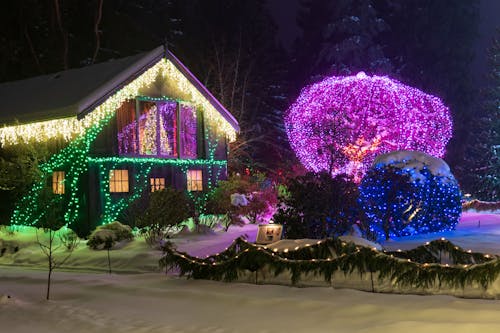
Want to leave your Halloween decorations up into November? Or keep your Christmas lights glowing well into January? In many HOA communities, that’s a finable offense. These neighborhoods have strict calendars for when decorations must go up—and when they must come down.
The rules often allow decorations only 30 days before and a few days after the actual holiday. Leave them too long and you risk a warning letter or a fine. The reasoning is to avoid visual clutter and maintain “neatness,” according to Elite Management Services. But to outsiders, it just feels like the holiday spirit has a curfew.
2. Hanging Laundry Outside is Forbidden
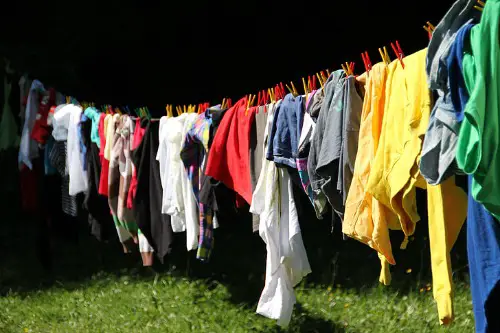
In some American neighborhoods, especially those governed by older HOAs, you’re not allowed to hang clotheslines, according to Ron Baker of House Digest. That means no drying your laundry in the sun—something that’s completely normal in many countries. The rationale is again tied to aesthetics: clotheslines are seen as “unsightly.” This rule still exists in parts of Colorado, North Carolina, and New York.
It’s ironic because sun-drying is energy-efficient and environmentally friendly. Some states, like California, have had to pass “Right to Dry” laws to override these HOA restrictions. But even with those laws, enforcement varies and many people just avoid the hassle. So yes, you can be fined for trying to save energy with your socks on a string.
3. No Pickup Trucks Allowed in Driveways
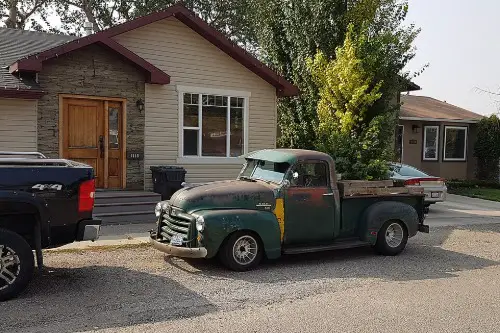
This rule is especially common in older, more upscale subdivisions—particularly in places like parts of Florida or Texas. Some HOAs have banned pickup trucks from being parked in driveways overnight, even if they’re registered to residents, according to Bethan Moorcraft of Money Wise. The logic? Trucks are seen as “commercial” and allegedly ruin the residential aesthetic.
It doesn’t matter if it’s a brand-new Ford F-150 or a beat-up work truck. If the rule exists, you might have to park it in your garage or find alternative parking. Residents have challenged this rule in court and sometimes won, but it’s still surprisingly common. So yes, your vehicle choice might clash with your zip code.
4. No Vegetable Gardens in the Front Yard

In some communities, growing vegetables in your front yard is a hard no. A well-known example comes from Miami Shores, Florida, where a couple was fined for their productive but non-ornamental front garden. The rule says only decorative plants—like flowers or shrubs—are allowed out front. Edibles, apparently, ruin the suburban vibe.
Supporters of the rule claim it’s about maintaining “visual harmony.” Critics argue it’s a bizarre restriction that punishes self-sufficiency. Some municipalities have started rolling back these ordinances due to public pressure, but many still enforce them. So if you want to grow tomatoes, you might need to keep them hidden behind the house.
5. Your House Color Has to Be Pre-Approved
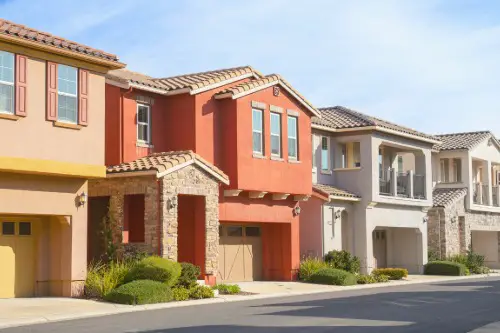
You’d think painting your house would be a simple personal choice, but not in some neighborhoods, according to Kim Brown of Condo Control. Certain HOAs only allow specific pre-approved shades—usually neutral colors like beige, gray, or muted earth tones. If you go rogue with a bold pink or a deep blue, you could be fined or ordered to repaint. Some neighborhoods in Florida and Texas are especially known for these strict color controls.
The reasoning is uniformity; they want the community to maintain a consistent aesthetic. While that sounds fine in theory, it means your creative expression might be shut down. Even small changes, like painting your door red, might be a no-go without written permission. And good luck if you already painted without asking—they might make you undo it at your own cost.
6. Only Specific Types of Grass Are Allowed

You might think grass is grass, but some HOAs get extremely picky about your lawn. Some communities in Arizona and Nevada dictate not only that you must have grass, but what kind—usually cool-season blends or drought-tolerant types. Plant the wrong species and you could face re-sodding orders. Even artificial turf has to meet exact specifications.
The idea is to keep everything looking cohesive, especially in areas where landscaping matters for property values. But it turns lawn care into a high-stakes game. If your grass looks different from your neighbor’s, it could be seen as a breach of community standards. So no, you can’t just plant what you like—even if it’s better for the climate.
7. You Can’t Park in Your Own Driveway Overnight

Yes, in some American neighborhoods, parking in your own driveway overnight is against the rules. Places like certain communities in San Diego County have HOA (Homeowners Association) covenants that ban overnight driveway parking to preserve a certain “curb appeal.” The idea is that visible vehicles look messy or cluttered, even if they’re neatly parked on your own property. Homeowners can be fined or even towed if they break the rule.
It sounds outrageous because most people assume their driveway is their domain. But in HOA-governed areas, private property often comes with some very public limitations. These rules are usually buried in dense legal documents homeowners sign at closing. So yes, people often don’t realize this until the citations start piling up.
8. No Satellite Dishes Allowed—Even If You Need One

Satellite dishes used to be the battleground of HOA restrictions. Many associations banned them entirely, citing visual clutter or potential damage to roofs. But the FCC actually passed the Over-the-Air Reception Devices (OTARD) rule, which protects homeowners’ rights to install small dishes. Still, some neighborhoods try to skirt this by enforcing placement rules that make the dishes useless.
The result is a strange tug-of-war between federal law and neighborhood bylaws. Some residents have to fight to assert their right to access TV or internet via satellite. The rules can be especially problematic in rural areas where cable isn’t available. So yes, even watching TV might require legal wrangling.
9. Basketball Hoops Must Be Temporary
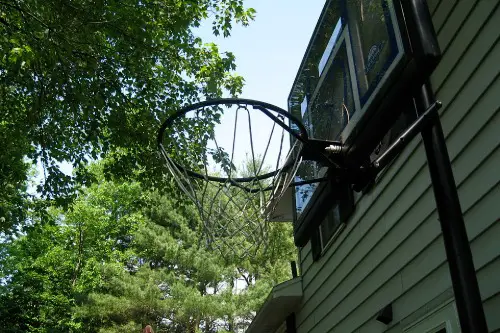
Many neighborhoods only allow basketball hoops if they’re the kind you can roll into the garage. Permanent hoops—those cemented into the ground—are often banned outright. The reason? They’re considered “permanent structures” and supposedly degrade the look of a neighborhood.
Some HOAs go so far as to say you can’t leave portable hoops out overnight. That means kids have to move them in and out every single day, which kind of defeats the casual fun of shooting hoops. The rules are enforced to maintain visual order, but can end up squashing spontaneous play. So your driveway might look neat, but your jump shot suffers.
10. Garage Doors Must Be Kept Closed at All Times
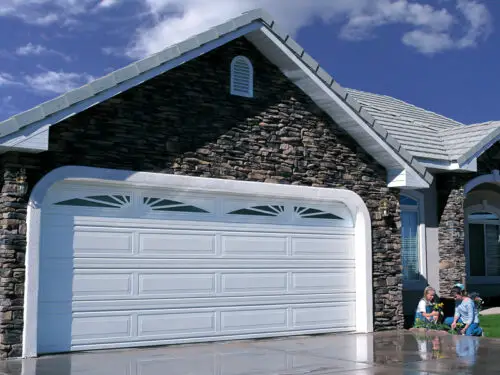
In some California neighborhoods, residents have been required to keep their garage doors closed unless they’re actively coming or going. The rules are about safety and appearance—HOAs claim open garages invite crime or make the neighborhood look messy. But this has led to absurd cases where people have been fined for airing out their garage or doing a quick project.
One neighborhood in Auburn, California even enforced this rule with patrols checking for open doors. Residents pushed back, and eventually, the rule was reversed. Still, many places quietly keep similar regulations on the books. So your open garage might be breaking a rule you didn’t even know existed.
11. You Can’t Have More Than Two Pets

Pet limits are a real thing in some American neighborhoods, especially those governed by HOAs or city ordinances. Two dogs or cats is the common limit—any more and you’re technically violating the rules. Some places even specify weight limits or ban certain breeds altogether. These rules are meant to reduce noise, mess, and perceived risk.
But for families who rescue animals or just love pets, this can be heartbreaking. Getting “pet approval” is a thing, and exceeding the limit could mean fines or forced rehoming. Even fostering a third animal temporarily might technically break the rule. So your household might need to downsize—just not in the way you expected.
12. You Need Approval to Plant a Tree
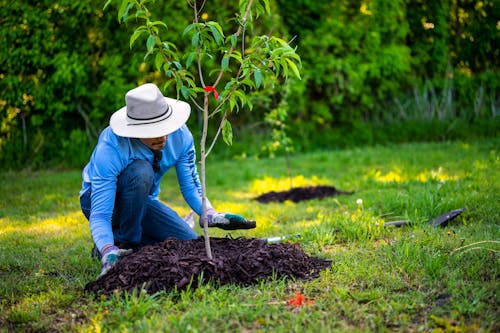
Yes, in some neighborhoods, planting a tree in your own yard isn’t as simple as digging a hole. HOAs often require approval for tree placement, species, and even size. The goal is to prevent overgrowth, root damage, or views being blocked by overly tall trees. This is especially strict in desert communities or those with shared irrigation systems.
Even replacing a tree that died might need a signed form and an inspection. Some communities have arborist-approved lists and punish unapproved planting with hefty fines. The irony? Many of these same HOAs also fine you if you don’t have enough greenery. So plant a tree—but only the “right” one, in the “right” spot, with the “right” paperwork.


